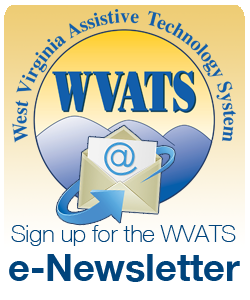Summer 2017
Articles: [Remaining Independent with Dementia] [Powerful Tools] [Farm and Garden] [WVATS is Going Green]
WVATS News
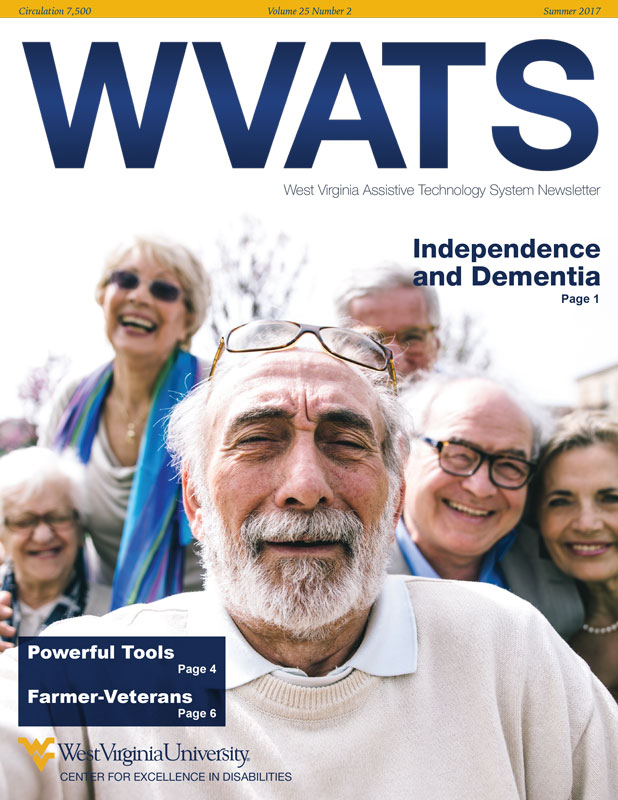
Remaining Independent with Dementia
If someone you care for has dementia, you may be planning for the future. People with dementia often have problems with thinking and memory. It may also affect a person’s ability to do daily tasks. Dementia can be caused by medication use, normal aging, Parkinson’s disease and other conditions as well as Alzheimer’s disease.
Assistive technology (AT) may help people with dementia stay independent. This can help them enjoy time with family and friends, and be active in community events.
Here are some AT ideas for daily living activities.
- Digital voice recorders – Record and play reminders and instructions. This could include shopping lists, appointments, directions and items.
- Talking clocks – Provide voice announcements of the time or alerts. Most let you choose from several different alarm sounds.
- Talking wristwatch – Help a person remember routines or guide them on a community outing.
- Daily pillbox – Pillboxes with timers/alerts can remind someone to take their pills. Some also hold a small amount of water. This allows the person to take medications no matter where they are.
- Dressing aids – There are many devices to help with dressing. These can include elastic or non-tie shoelaces, buttonhooks, zipper pulls, easy-to-pull sock aids and tools for reaching objects.
- Grooming aids – No-rinse shampoo and body wash, long-handled combs and brushes, and pumps for soap or toothpaste can all help with grooming.
- Adaptive clothing – Many stores carry items that use Velcro or elastic instead of buttons or zippers. Special catalogs or websites also can help you find adaptive clothing for all occasions.
- Communication boards – Simple boards that use pictures and words may help someone with dementia express desires or emotions. A board with pictures showing steps for getting ready can also help someone prepare for a day of shopping or other activities.
- Alert devices – These devices are especially useful if a loved one wanders or becomes lost. You may want to check with your local senior center or other organization for programs like Project Lifesaver or Alzheimer's Association Safe Return.
Being a caregiver can be stressful. Resources are available, including the Family Caregiver Alliance (caregiver.org). This site includes national and state resources. It also has information on AT for individuals and caregivers.
For more information on AT ideas and your loved one with dementia, contact WVATS at 800-841-8436.
Fair Housing and Reasonable Accommodation
The Fair Housing Act provides many ways to make sure people have an equal chance for housing. Physical access to housing is often an issue for people with disabilities. Sometimes the policies of the housing facility are the issue, not the doorway or steps.
A change to a rule, policy, practice or service is called a reasonable accommodation. If changed, this would allow a person with a disability to have an equal chance to use and enjoy the housing. If a change is not granted upon request, it may be because of discrimination.
The requested accommodation must be connected to the person’s disability to be considered “reasonable.” For example, a housing provider provides parking but has a policy of not assigning parking spaces. A resident with a problem walking asks for an assigned space close to her door. The provider must grant this request.
Another example is a housing provider with a “no pets” policy. A tenant who is deaf asks to keep his dog as an assistance animal. The dog alerts him when someone knocks at the door or the telephone rings. This request must be granted.
A housing provider can deny a request if:
- It is not made by or on behalf of a person with a disability.
- There is no disability-related need for the accommodation.
- The request would impose a financial and administrative burden on the housing provider or change the provider’s operations.
If you have requested a reasonable accommodation and been denied, talk with the West Virginia Housing Advocate. The West Virginia Housing Advocate can be reached at 304-296-6091 or at wvfairhousing.org.
Five Employment Rights from Disability Rights of West Virginia
- Reasonable accommodations may be requested that permit you to: participate in the job application process; perform essential functions of the job; and enjoy employment benefits and privileges.
- You are only required to disclose a disability if you need a job accommodation. You choose if and when to disclose your disability. Employers may not ask you if you have a disability, or about the nature/ severity of your disability, during the application process or job interview. Accommodation requests can be made at any time during your employment.
- Vocational rehabilitation services can assist you with preparing for, securing, retaining, making advancements in or regaining employment. The purpose of vocational rehabilitation is to maximize employment, economic self-sufficiency, independence and inclusion and integration into society.
- Individuals should be full and active partners in the vocational rehabilitation process, making meaningful and informed choices, ensuring opportunities to obtain gainful employment in integrated settings.
- Vocational rehabilitation services are available to students with disabilities starting as early as age 16 in order to develop a plan to help the student transition from school to employment. The vocational rehabilitation counselor should participate in the transition planning process to assist the student to meet their employment goals.
For more info, call Disability Rights of West Virginia at 800-950-5250 if you have any questions about transitioning from school to work, gaining/ maintaining employment or returning to work (or visit: drofwv.org).
Powerful Tools
Available for Loan

Digital Voice Recorder
Voice recorders allow users to record messages to use as reminders. These can be for appointments, shopping lists or other activities. Voice recorders can also be used to record visits with a doctor or other important information.
Stove Guard
This device features an automatic stove shutoff. It detects when the stove is unattended by monitoring movement in the cooking area. The stove guard will shut down power to the stove after a selected period of time.
Zipper Ring Pulls
The ring on the end is easier to grip than a standard zipper for most users. The easy to use tools attach to almost any zipper.

MedCenter Pill Alarm
This talking alarm clock also reminds users to take their pills. Users can set up to four alarms per day.
These tools are available for shortterm loan and/or demonstration through the WVATS Loan Library.
For more information, or to borrow these items, visit vll.cedwvu.org or call 800-841-8436.
AT for Dementia
Anti-Scald Device
The hot water in your home will gradually get warmer and warmer and can sometimes get too hot. The Anti-Scald device will ensure the water stays at a safe temperature so you don’t have to worry about scalding. The attachment easily screws on to most standard sinks. Automatic temperature controls for the shower are also available.
For more information, visit alzstore.com or call 800-752-3238.
Amplified Memory Picture Phone

This phone has ten frames for pictures of friends and family. One can also be used for 911 emergencies. The phone has a loud ringer and a visual ring indicator.
For more information, visit alzstore.com or call 800-752-3238.
Everyday Skills App
Everyday Skills is an app available on Apple and Android devices. It provides learning sessions for 40 skills for living independently and accessing the community. The Everyday Skills App is designed to be used directly by individuals with cognitive needs.
For more information, visit ablelinktech.com or call 719-592-0347.
Farm and Garden
Farmer-Veteran Coalition
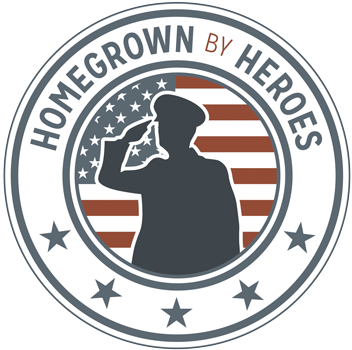
Across the country, there is an effort to help veterans entering the farming industry. Through their service in the military, many veterans have the skills and character to be successful farmers. Farming can provide veterans with jobs. It also offers purpose, opportunity and physical and mental health benefits.
The Farmer Veteran Coalition (FVC) is a nonprofit group created to support veteran farmers. The FVC helps veterans as they transition from military life. They do this by creating a collaboration of the farming and military communities. Through the FVC, farmer-veterans can feel the same camaraderie they had in the military.
FVC members receive free assistance from FVC staff. They help in areas such as food safety planning, marketing and business planning. The group connects members to resources for all areas of farming as well. These include:
- Farm education programs such as internships/apprenticeships, incubator farms and training programs.
- Business resources such as farm business planning and legal planning.
- Farming resources.
- Resources for financing a farm.
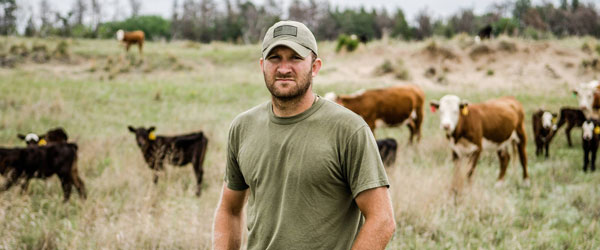
The FVC has also created the Homegrown By Heroes (HBH) program. Through the FVC, farmers can place the Homegrown By Heroes label on their products in the marketplace. This tells buyers veterans grew these products. They are supporting a farmer-veteran by purchasing these products.
In April 2011, the FVC created the Farmer Veteran Fellowship Fund. The fund provides direct assistance to veterans in their beginning years of farming or ranching. The program does not give money directly to the veteran. It works with vendors to purchase critical items for the farmer’s business. The funds can also be used as a scholarship to study for a career in agriculture at a college, university or farm-training program. The application period usually opens in February of each year.
For more information on the Farmer Veteran Coalition, visit farmvetco.org or call 530-756-1395.
Farm Aid 2017
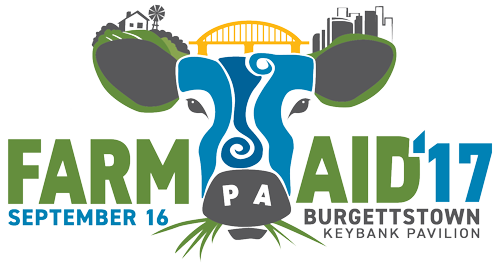
Many people know Farm Aid as an annual concert to raise awareness about family farms. Farm Aid provides a variety of resources to family farmers around the country. Funds raised from the concert provide grants to nonprofit organizations working to strengthen family farm agriculture in the United States.
Farm Aid grants mainly focus on three areas:
- Growing the Good Food Movement, supporting efforts that build local and regional food systems and connect family famers directly with consumers.
- Helping Farmers Thrive supports efforts that provide family farmers start farms, helps them to use better farming practices and/or keep farming in times of crisis.
- Taking Action to Change the System, supports the promotion of fair farm policies.
For more information about Farm Aid, visit farmaid.org or call 617-354-2922.
Farm Tools
Tailgate Ladder
Pickup truck bed access steps help workers get in and out of the truck bed without climbing large steps or jumping. The bed of a truck can be 24 – 45 inches off the ground. The tailgate ladder attaches to the tailgate of the truck and folds away when not in use.
For more information, visit northerntool.com or call 800-838-0516.

ErgoMates Wearable Anti-Fatigue Mats
These shoe cushions provide padding to stand on while working. Standing or walking on concrete floors can cause fatigue and stress to legs and back joints. The cushions are worn over sneakers or work boots. They come in a wide variety of sizes for women and men.
For more information, visit disabilityworktools.com or call 888-354-3289.
Sit Stand Stool
A sit/stand stool allows people to work in a supported standing position at a workbench. It is useful for people with limited leg strength or endurance, poor balance and back injuries. This item is available for loan from the West Virginia AgrAbility program.
For more information, visit vll.cedwvu.org or call 800-841-8436.
WVATS is Going Green
WVATS creates the quarterly newsletter in print and digitally. In an effort to reduce cost and waste, we will be printing fewer copies of the newsletter. We will also be reducing our mailing list. This will begin with the fall 2017 edition.

WVATS would like newsletter recipients to consider signing up for the e-Newsletter. The e-Newsletter offers the same content as the print version. It is delivered to your email. People signing up for the e-Newsletter will not receive a printed copy in the mail.
There are three ways to sign up for the e-Newsletter:
- Visit wvats.cedwvu.org and select the ‘Sign up for the WVATS e-Newsletter’ icon at the bottom of the page
- Email wvats@hsc.wvu.edu
- Call 800-841-8436
If you normally receive the print WVATS Newsletter and do not elect to switch to the e-Newsletter, watch for the fall 2017 edition. If you do not receive the issue by November 2017, please contact wvats@hsc.wvu.edu or call 800-841-8436.

